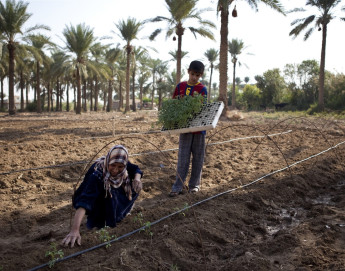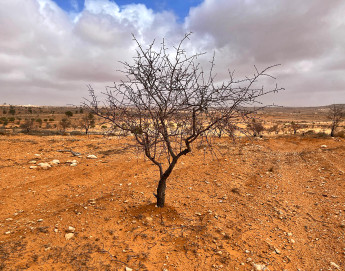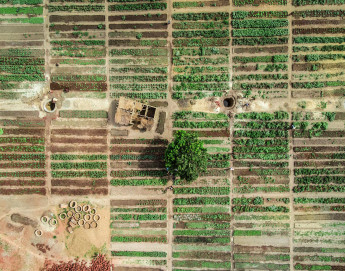ICRC Statement: "Longer-term systemic shifts are needed to ensure protection from greater climate shocks"

President, Excellencies,
The International Committee of the Red Cross (ICRC) welcomes today's important debate on climate change, peace and security held at the initiative of the United Arab Emirates
ICRC has briefed this Council, most recently in October 2022 under the presidency of Gabon, that the compound impacts of environmental degradation, climate change, and armed conflict are changing the pattern of humanitarian needs, creating new and combined risks for vulnerable populations and multiplying existing inequalities in conflict zones.
Furthermore, the natural environment, which has certain protections under international humanitarian law, continues to be a "silent casualty of war," with consequences of environmental damage for conflict-affected populations that include a lowered resilience to climate shocks.
Additionally, based on its civilian character, any part of the natural environment that is not a military objective is also protected against "incidental damage"
Today's debate explores how climate change impacts the capacity of UN peacekeeping and special political missions to implement their mandates, a challenge which is equally present for humanitarian organizations.
Humanitarian organizations like the ICRC have a role and a responsibility to work with others to reduce the impacts of crises by adapting their own responses and strengthen people's resilience to growing risks in conflict settings
This is reflected in the Climate and environment charter for humanitarian organizations, co-developed with the International Federation of the Red Cross and Red Crescent Societies, and which has been signed by over 360 humanitarian organizations. Governments can also show their support to the charter by endorsing its commitments.
The concept note also discusses how climate action can provide entry points for peacebuilding, and underscores the potential for synergies between security, humanitarian, development and climate actors that help reduce instability and fragility, which is particularly important for situations of protracted conflict.
Today, 60 % of the 25 countries most vulnerable to climate change and with the least adaptation capacity are affected by armed conflict. This has effects on all dimensions of people's lives, from their safety and health, to their food, water and economic security.
ICRC sees real time development reversals and meets people who have not received adequate support to adapt to changing weather patterns and extreme shocks. As conflicts and fragility tend to last for decades, waiting for stability to address climate risks is not a viable option, particularly when the risks themselves are a contributing factor towards new or increased instability.
Humanitarian action is a vital component in fragmented environments, but it is far from the only ingredient to achieve sustainable peace. Humanitarian actors bring proximity to communities, an understanding of how people manage in conflict situations and an ability to test and identify promising practices, but longer-term systemic shifts are needed to empower resilient populations and ensure protection from greater and more frequent climate shocks.
The UN Security Council and its regional partners bring the ability to design context appropriate and multidisciplinary responses to armed conflict that are climate sensitive with a built-in risk tolerance.
Along the way, leveraging the collective expertise of actors in conflict and post-conflict situations, and listening closely to local communities which are most affected, can help inform a response that answers to rising shocks and limits the impact the climate crisis is having on people affected by armed conflict and instability.
Thank you.
Media contact:
Yuriy Shafarenko, ICRC New York, +1 917 631 1913 yshafarenko@icrc.org



